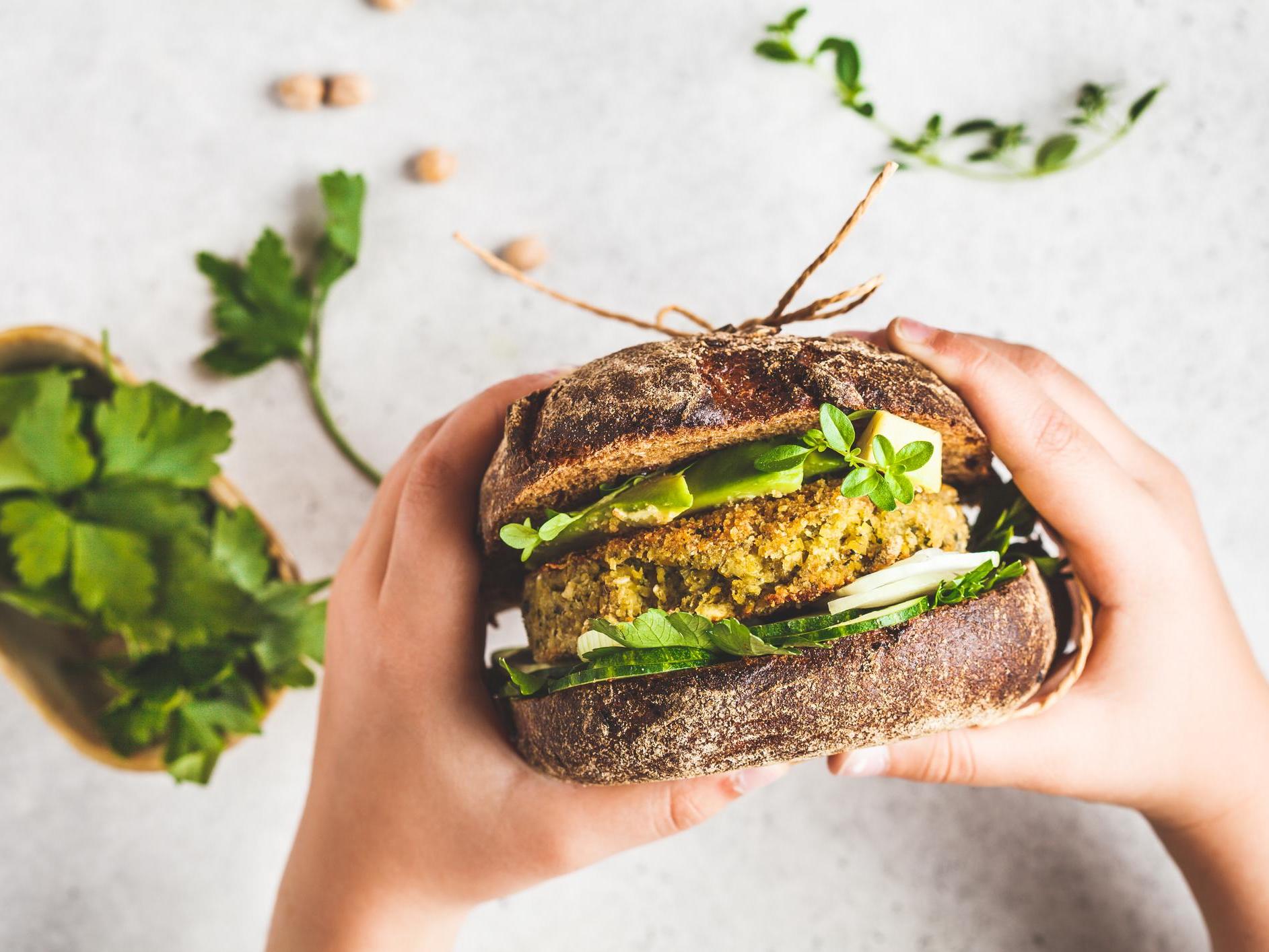Demand for new vegan food products surges in UK post-lockdown
‘There are now more vegan products on supermarket shelves than ever before,’ says trademark lawyer

Your support helps us to tell the story
From reproductive rights to climate change to Big Tech, The Independent is on the ground when the story is developing. Whether it's investigating the financials of Elon Musk's pro-Trump PAC or producing our latest documentary, 'The A Word', which shines a light on the American women fighting for reproductive rights, we know how important it is to parse out the facts from the messaging.
At such a critical moment in US history, we need reporters on the ground. Your donation allows us to keep sending journalists to speak to both sides of the story.
The Independent is trusted by Americans across the entire political spectrum. And unlike many other quality news outlets, we choose not to lock Americans out of our reporting and analysis with paywalls. We believe quality journalism should be available to everyone, paid for by those who can afford it.
Your support makes all the difference.Trademarks registered for vegan food and drink products have soared in the UK in recent months, new figures show.
According to research compiled by trademark law firm EMW, the number of trademarks for plant-based products has more than doubled, reaching a record high.
The figures show that 107 trademarks were successfully granted for products such as vegan ice cream and meat-free burgers.
The trademarks were completed prior to the UK lockdown, but supermarkets have continued to report strong sales of plant-based products during the pandemic, with veganism thought to have been on the rise in recent months.
Among the brands to have successfully filed trademarks for vegan products in the last year are Unilever, Magnum, and Ben and Jerrys.
Daisy Divoka, an associate at EMW, told The Guardian: “There are now more vegan products on supermarket shelves than ever before.
"Multinational corporations have identified this as a fast-growing sector and are competing to register their trademarks with the aim of capturing and defending a share of the market.”
The new figures come after a study by The Vegan Society found that flexitarianism was on the rise as one in five (20 per cent) of Britons reduced their meat intake in lockdown, while 15 per cent chose to reduce their dairy and/or egg intake.
The findings reflected not only how consumer habits changed in the pandemic, but how people adapted their diets in light of various supermarket shortages.
For example, out of those who have reduced their meat or dairy consumption, 41 per cent said they did so due to their preferred product not being available on the supermarket shelves.
Meanwhile, 43 per cent chose to reduce their meat consumption out of concern for health, environmental or animal rights reasons.
Join our commenting forum
Join thought-provoking conversations, follow other Independent readers and see their replies
Comments